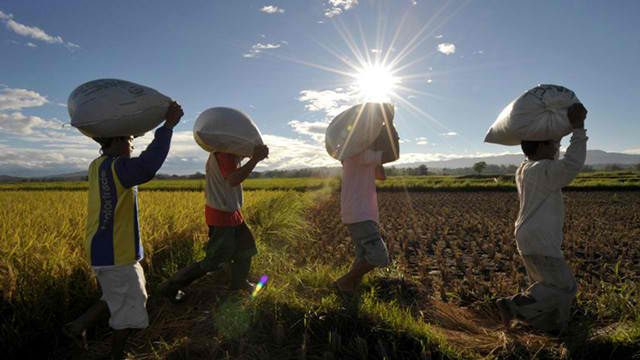SUMMARY
This is AI generated summarization, which may have errors. For context, always refer to the full article.
 Apart from describing the mechanism of natural selection, the phrase “survival of the fittest” goes beyond a mere biological concept. In Darwinian terms, it can be viewed as the “survival of the form that will leave the most copies of itself in successive generations.” But even more than an evolutionary theory, others have interpreted it to be expressing a moral one.
Apart from describing the mechanism of natural selection, the phrase “survival of the fittest” goes beyond a mere biological concept. In Darwinian terms, it can be viewed as the “survival of the form that will leave the most copies of itself in successive generations.” But even more than an evolutionary theory, others have interpreted it to be expressing a moral one.
Russian anarchist Peter Kropotkin viewed the concept as “supporting cooperation rather than competition.” His analysis led him to the conclusion that the fittest species find in association the best arms for the struggle for life, a struggle that is not for the sheer means of existence, but one against all natural conditions unfavorable to them.
He furthered that “the animal species, in which individual struggle has been reduced to its narrowest limits, and the practice of mutual aid has attained the greatest development, are invariably the most numerous, the most prosperous, and the most open to further progress.”
Now the human race is met with its most pressing challenge yet — a world of changing climate patterns. For all we know, this can be evolution’s test to determine which species will emerge the fittest one of all.
A threat to human life?

Climate change and human health always show an interesting parallel. Even more than just a burgeoning environmental concern, the world’s changing climate patterns can as well pose hazards to one’s life and well-being.
The impacts of climate change are more extensive than one can ever imagine. It can have several impacts to human health, which can be from heat waves, extreme weather events, and other health linkages. (READ: Climate change impacts health – UN)
Warmer temperatures hugely contribute to an increase in ozone, which then result to exacerbated urban air pollution. According to the United States Environmental Protection Agency, ground-level ozone can damage lung tissue and can reduce lung function and inflame airways. This can increase respiratory symptoms and aggravate asthma or other lung diseases. It is especially harmful to children, older adults, outdoor workers, and those with asthma and other chronic lung diseases.
Changing weather conditions can also enhance the proliferation of climate-sensitive diseases. As highlighted by entomologist and health professor, Dr Lilian A. De Las Llagas, climate change can as well influence the distribution and endemicity of Dengue and Malaria, as vector-borne diseases are directly affected by climate.
A prolonged period of excessively hot weather can cause water levels in dams to plummet. Shortage of clean water for drinking and farming can lead to severe issues of food security, which can threaten human health through malnutrition, spread of infectious diseases, and food poisoning. Droughts and floods can also dramatically vary the prices of food and other basic commodities.
In extreme cases, abnormally high air temperature can even lead to heat-related deaths.
Poor, rich, climate
We have yet to see the worst effects of climate change. Unfortunately, in most episodes, it is the poor and the marginalized who are most vulnerable.
Should developing countries just grin and bear it? (READ: Can the climate challenge unify the ASEAN?)
In the same way as mansions and luxury cars are perceived to denote one’s social position, the ability to cope up with the hostile effects of climate change seems to be another form of status symbol. Rich countries are more adaptable and less affected, while developing nations are carrying much of the burden. If we were to be placed in the planet’s harshest and most unforgiving environment, it is the moneyed who are more likely to stay alive. The lower your place in the pyramid, the lower your chances of survival.
Larger and more developed economies are the major contributors of carbon emissions, yet the developing nations are the ones who foot the bill. Wealthy and powerful countries appear to be the only key influencers in the climate negotiations.
As world leaders are about to meet together in Paris in December to forge a new, universal, and legally binding agreement to reduce greenhouse gas emissions to limit the global temperature increase to 2°C, developing countries should play an instrumental role in the negotiations and shape the final outcome.
Naderev Yeb Sano, a Filipino diplomat who became the face of UN climate talks in Poland last year, has shown the world that even developing countries – like the Philippines – can be resilient in times of disasters, has the ability to rise again as a nation, and has the power to be heard and recognized in the international community.
Mutual support, not struggle
Will rich nations be sincere in their pledged commitments to help the poor ones face the waves of climate change? Or will the negotiations be a repeat of the failed Copenhagen Agreement in 2009?
Of course, politics and national interest will always be there. But in the struggle for life, it should not be a question of the gap between the haves and the have-nots, the powerful and the weak, or the ally and the enemy. For in these trying times, to survive is not necessarily to be the best at competing individually, but to be a community made up of those best at working together.
To quote Philippine Senator Loren Legarda, a top environmental champion, “Now is the time for all of us to unite against all these challenges and to transcend territorial boundaries, political persuasions and institutional affiliations…let us be the change we seek.”
After all, in the grander scheme of things, it is neither the strongest nor the most intelligent species that survives, but the one most responsive to change. – Rappler.com
Engineer Roy Joseph Roberto, 24, is currently part of #Call4Climate, a worldwide online writing campaign on Climate Change. He went to Japan and Cambodia to attend youth exchange programs about the environment. He is also a Network and Communications Executive of the ASEAN Youth Leaders Association – Philippines.
Add a comment
How does this make you feel?
There are no comments yet. Add your comment to start the conversation.